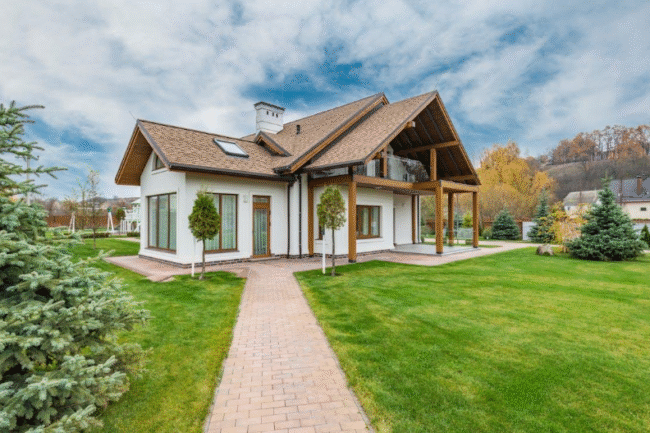
Thinking about buying your dream home in Nicaragua? Whether it’s a beachfront paradise, a colonial gem in Granada, or a quiet mountainside retreat, the country offers incredible opportunities for those ready to take the plunge into the real estate market. But buying property in a foreign country comes with its quirks. Legal processes can differ wildly from what you may be used to, so it’s essential to understand the ins and outs before jumping in.
This guide will walk you through the legal tips and insights you need to ensure your experience is as stress-free as a hammock siesta on a warm Nicaraguan afternoon.
Why Choose Nicaragua
Before we get into the legalities, let’s talk about why Nicaragua is such a hot spot for property buyers.
- Affordability: Real estate here is often far cheaper than in the U.S. or Europe. That means your dollar can stretch a lot further, especially when looking at houses for sale in Nicaragua.
- Natural Beauty: From volcanic landscapes to serene beaches, the scenery is breathtaking. Who wouldn’t want to wake up to views like these?
- Welcoming Culture: The people are friendly, the food is delicious, and the pace of life is refreshingly laid-back.
Now that you’re sold on the idea, let’s make sure your dream of owning a house doesn’t turn into a legal nightmare.
Do Foreigners Have The Right To Buy Property?
The good news is yes! Nicaragua is one of the more foreigner-friendly countries when it comes to real estate. Both locals and foreigners have the same rights to purchase and own property. There are no restrictions on foreigners owning land, which makes it easier to browse those stunning houses for sale in Nicaragua without worrying about hidden legal barriers.
That said, there’s one key thing to remember… research is your best friend. Here’s why.
- Land Titles Can Get Tricky
Clear titles are crucial. Unfortunately, it’s not uncommon for properties to have unclear ownership histories, unresolved ownership disputes, or even overlapping claims. Always request to see a property’s title and ensure it’s clean and valid.
- Agricultural and Coastal Land Laws
Nicaragua has specific regulations for agricultural land and properties within 200 meters of the high-water mark. While you can still own property near the coast, there are restrictions on direct beachfront ownership in some areas. Always understand the rules before falling head over heels for that idyllic beachfront cottage.
Legal Tips for a Smooth Process
Knowledge is power, especially when venturing into a foreign real estate market. Here are the key legal tips to safeguard your investment.
1. Hire a Reputable Attorney
This cannot be stressed enough. Buying property is a major financial decision, and having a local attorney who understands Nicaraguan real estate law is vital. Your attorney will guide you through reviewing paperwork, ensuring the title is clear, and avoiding potential scams.
2. Conduct a Title Search
Don’t just take the seller’s word for it. A thorough title search will confirm the property’s legal ownership and whether there are liens, mortgages, or disputes tied to it.
3. Get a Survey of the Property
Always visit the property in person and commission a professional survey. This ensures that what you’re buying aligns with the property’s description on paper, avoiding nasty surprises about boundary disputes or misrepresented property sizes.
4. Understand the Purchase Process
Buying property in Nicaragua usually involves a Promesa de Venta, or a purchase agreement. This document defines the terms of the sale, including a deposit (often 10%). Once all the conditions of the agreement are met, the final purchase is typically executed through a notary public.
Taxes and Fees
Nobody likes extra costs, but knowing what you’re walking into can save a lot of headaches.
- Transfer Tax: This is applied to the total sale price of the property (typically 1–2%).
- Notary Fees: Your lawyer or notary will charge fees for drafting and legalizing documents. Rates generally hover around 1%.
- Registrar Fees: There’s a small charge for recording the title in your name at the public registry.
Once the property is yours, you’ll also be responsible for annual property taxes, though they’re relatively low compared to other countries.
Building Relationships and Staying Alert
When you’re browsing houses for sale in Nicaragua, building relationships is important. The expat and local community in Nicaragua can be an invaluable resource for sharing advice, recommendations, and even real estate leads.
But while trust is key, always remain cautious. Unfortunately, scams do happen. Watch out for “too good to be true” deals, and ensure all transactions and agreements are documented and legally binding.
Benefits Beyond the Purchase
Once you’ve navigated the legalities and settled into your new home, you’ll enjoy more than just a stunning view. Owning property in Nicaragua often means you’re a part of a local, welcoming community. You’ll have access to fresh food markets, vibrant festivals, and an affordable lifestyle that feels downright luxurious.
But perhaps the biggest benefit? The joy of waking up every day knowing your decision was legally sound, setting the stage for a fulfilling chapter in paradise.
Get Started on Your Property Journey
Buying a house in Nicaragua can seem like a daunting task, but with the right knowledge and preparation, it’s more than achievable. Make sure you’re informed, work with trusted professionals, and double-check every step of the process.
When you’re ready to begin, start your search for houses for sale in Nicaragua with confidence. Who knows? Your dream home might just be one legal tip away.
